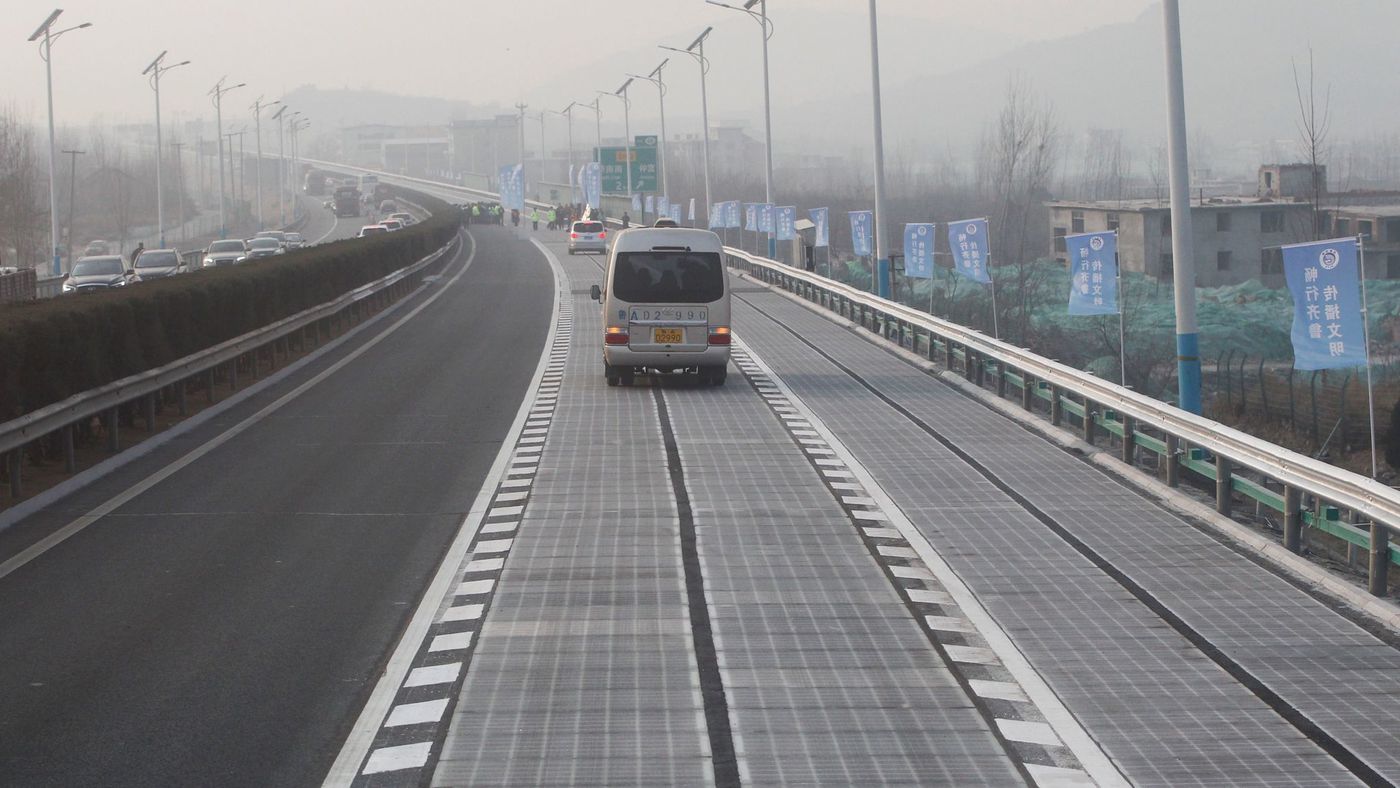In December 2017, a 3,540-foot-long stretch of road opened up in the eastern Chinese city of Jinan. This is no ordinary road. In fact, it may be the most technologically advanced road ever built. Built by Qilu Transportation Development Group, Co., this “intelligent highway” features transparent concrete panels which house solar panels, mapping sensors, and the promise of wireless charging for electric vehicles.
According to a recent Bloomberg article, the construction of this unique roadway consists of three vertical layers. The top layer is a shell of see-through material which allows sunlight to reach the solar panels on the layer below. There is also space inside the top layer for wireless charging cables as well as sensors that monitor temperature, traffic flow and weight load.
The goal of this massive project is for the road to be just as smart as the future vehicles that will travel on it. The Chinese government predicts that 10 percent of all cars will be fully self-driving by the year 2030, and this is motivation for China to take the lead in the evolution of self-driving cars and supporting infrastructure.
China also sees this as an opportunity to transform its current reputation as the world’s producer of cheap goods into a world leader in tech and innovation.
Meanwhile, here in the U.S., Innovators are busy on several similar projects to ensure the intelligence of our cities and roadways. Smart-Cities initiatives have been in play for several years now in an effort to better connect traffic control, street lighting, surveillance, and first responders for more efficient traffic flow and emergency response.
Among other interesting projects, a company called Integrated Roadways is currently preparing to run a pilot test of smart pavement technology in Colorado. Startland News reports that Integrated Roadways is working to install a half mile of their smart-pavement technology on U.S. 285 near Fairplay, CO, in partnership with the Colorado Department of Transportation,
Integrated Roadways claims that their patented technology “Smart Pavement” is the future of American infrastructure. The prefabricated road sections each contain sensors and are capable of collecting and transmitting data. The interconnected sections also allow for greater connectivity between self-driving vehicles and the grid.
“Smart Pavement identifies vehicle positions and behaviors in real-time, simplifying autonomous vehicle operation, providing dynamic real-time traffic information, automatic notification for accidents, pavement condition indexing, and data-driven safety improvements,” said Says Tim Sylvester, founder of the Kansas City-based tech startup.
One of the collateral benefits that Integrated Roadways claims is that smart pavement will be “financially self-sustaining by selling access to data, connectivity, and services,” said Sylvester.
“The goal, of course, is to make the road pay for itself, but in order to do that, we have to demonstrate the technology, [and] we have to demonstrate the revenue the technology can generate,” Sylvester said. “At the point that we have those two completed, that’s when we can start financing.”
These exciting new advancements in infrastructure come on the heels of incredible advancements already being realized in the world of automotive manufacturing. The future is becoming clearer as the technologies of self-driving cars and smart roadways start to come together.









